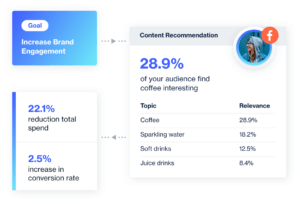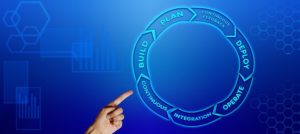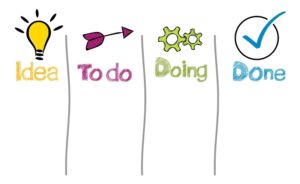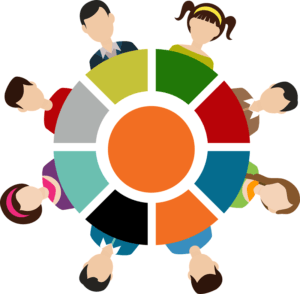Building better customer relationships: A breakdown of the differences between CDP and CRM
April 9, 2021

A customer data platform and customer relationship management system both deal with customers in their own unique way. However, there is plenty of overlap between the two. Part of understanding how they’re different involves knowing how they’re similar.
This article will easily guide you through both systems – how they work, who needs them and which is best for you.
What is a CDP?
A CDP (customer data platform) is an advanced software system that overhauls marketing processes involving data, such as in-depth analysis and building customer profiles. Marketers use CDPs to create better connections between themselves and customers through advanced AI-based technology.

Organizations who implement customer data platform technology do so in order to remove data silos and create a data uniformity throughout each department. Mostly, they use a CDP to build better customer profiles using data.
What is a CRM?
A CRM (customer relationship management) software system helps businesses build and manage their relationships with customers. A CRM centralizes information regarding customers. This includes things such as past interactions between them and a company, who they are and in what ways they reached out.

When it comes to boosting business success, a customer relationship management system is mostly used as a way to separate and organize data with improvements to things like customer experience.
What are the main differences between CDP and CRM?
On the most basic levels, CDPs and CRMs both improve customer relations, though they do so in different ways. They’re also involved in data management, in some way or another. However, the most referenced, observed way they differ is in their involvement with marketing.
Building customer relationships
The biggest difference comes with how these systems go about improving customer relationships and experiences. A customer data platform system does this through highly personalized processes leading to better understanding of specific customers.

We see this through the use of a couple different focused processes. The first is the customer profiles CDPs create, which focus on a single user rather than a group based on demographic data. The result of a profile built with precision is a stronger potential bond between organization and customer in the long term.
Understanding data
A customer data platform also, depending on the system, creates its customer profiles with the help of machine learning. Artificial intelligence is key to sifting through large amounts of data to locate the truly important elements and create a better way for an organization to understand users.

CRMs are designed to give businesses a chance to better understand customers by storing their information within a database, which the CRM manages. In a sense, the CRM system does help businesses understand their customers better the same way a CDP does, just on a smaller scale and with much less reach.
Specialty processes
When it comes to the specialty areas they improve, CRM and CDP differ quite a bit as well, but again there is some intersection. The largest focus and beneficiary of customer data platforms is typically marketers.

This is a bit different from the CRM, which is more specialized towards sales departments. This is apparent in the way both these systems collect and use data as well. Though both systems manage data, the CDP once again uses it in order to better understand customers to give them what they want, while a CRM does so with a sales-first approach.
Now that you’re aware of the main differences between these tools, let’s break down which one you should implement.
How to select the right one
Customer data platform and customer relationship management both offer helpful processes all in a similar vein, but how can you tell which one would best fit you? There are a few things to consider.
CDP
Due to the overwhelming advantage a powerful customer data platform provides marketers, it makes sense that you would select a CDP if you’re a marketer. Furthermore, if you want to build specific, personalized experiences for customers that will keep them satisfied with your organization, a customer data platform gives you the best chances.

Another reason to select a CDP is if your main focus is boosting customer experiences, but you struggle utilizing data to supplement these ventures. A CDP overwhelmingly maximizes the data to allow for superior strategies aimed at customer relationships and experiences.
CRM
As far as customer relationship management systems go, you’re most likely to benefit from its features if your needs are solved by its customer relationship tools. A CRM does offer personalized relationship management, and despite being helpful in that manner, it’s often just a foundational start to the process.

If you’re looking for a more broad-based system that doesn’t dive as deep into the specific, individual customer, a CRM will work just fine for you.
Closing thoughts
If you’re interested in either a CDP or CRM, then building better customer relationships is at the top of your priorities. Of course, a perfect fit for one organization won’t necessarily be a fit for you. Evaluate both systems so that you’ll reach important customer goals. Lastly, if you want another software system comparison, check out this breakdown of the difference between CDP and DMP.

